LONDON, (Reuters) – London defied Britain’s wettest summer for 100 years, potential transport and security chaos and a depressed economy to stage a marvellous 2012 Olympics during a magical year for British sport.
Over the past century Britons have become resigned to watching the rest of the world beat them at games they had either invented or codified at the height of the island nation’s imperial splendour.
This year, to their fans’ surprise and delight, British teams and athletes surpassed themselves across a range of sports, including third place in the Olympic medals’ table behind the world’s two great economic powers the United States and China.
Englishman Bradley Wiggins, who looks like a throwback to the English beat groups of the swinging sixties with his mop of hair and straggling sideburns, became the first Briton to win the Tour de France prior to taking a fourth Olympic gold medal.
After finishing runner-up in four grand slam finals during a vintage era for men’s tennis, Scotland’s Andy Murray finally made the breakthrough as the first British male in 76 years to win one of the big four titles with victory over Novak Djokovic in the U.S. Open.
And Northern Irishman Rory McIlroy, winner of four PGA titles including the PGA championship by a record eight strokes, was awarded the annual Jack Nicklaus award for player-of-the-year. At the age of 23 he was the youngest recipient since Tiger Woods in 1997.
At the heart of the year’s sporting action, London staged the summer Olympics for the third time to unanimous acclaim throughout the world.
Under the assured stewardship of organising committee chairman Seb Coe, as adroit in the convoluted realm of sports politics as he had been on the track while winning two Olympic 1,500 metres titles, the London organisation was impeccable.
Transport, one of the biggest worries in a cramped and crowded city, worked smoothly with enthusiastic and knowledgeable crowds flocking to venues sprinkled among some of London’s more celebrated landmarks.
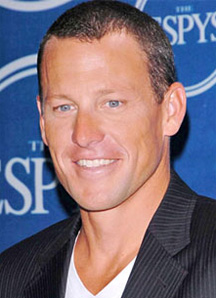
Rain fell nearly every day during the early part of a gloomy summer before an overdue burst of hot sunshine in the week leading up to the Games in late July. Thereafter the weather reverted to a more familiar English blend of the good, the bad and the indifferent without causing any serious disruptions.
Even the admission by a private security firm a fortnight before the 16-day festival that it could not supply enough guards proved an unexpected bonus.
Thousands of soldiers, sailors and airmen stepped into the breach and their disciplined professionalism and unfailing good humour further boosted the feel good factor.
The day after a quirky but compelling opening ceremony fusing historical and cultural glories with quintessentially British eccentricity, Michael Phelps took to the pool.
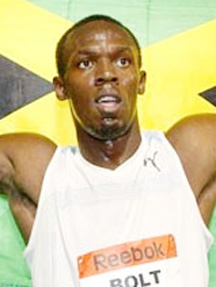
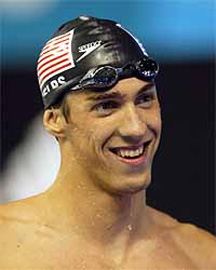
Winner of a record eight gold medals at the 2008 Beijing Games, Phelps faltered initially, finishing fourth in the 400 metres individual medley behind fellow-American Ryan Lochte.
By the end of the opening week, the American through sheer willpower was back to his best, finishing his competitive career with 18 gold medals from four Games. They included four golds in London and 22 medals overall to make him the most-decorated athlete in Olympic history ahead of former Soviet gymnast Larisa Latynina, who collected 18.
FINEST HOUR
While Phelps was gracing an Olympic pool for the last time on the middle Saturday of the Games, the nearby Olympic stadium erupted during Britain’s finest Olympic hour.
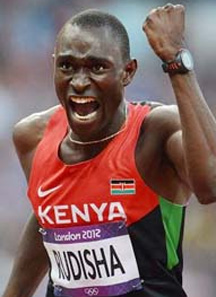
Reflecting the face of modern multi-cultural Britain, Somali immigrant Mo Farah won the 10,000 metres and the daughter of a Jamaican father and English mother Jessica Ennis finished first in the heptathlon. Greg Rutherford, the great-grandson of an England soccer international, won the long jump.
Usain Bolt, who had made a mockery of the world 100 and 200 metres records in Beijing, shrugged off doubts about his form, fitness and the threat of training partner Yohan Blake, who had beaten him twice at the Jamaican trials, to become the first man to retain both Olympic titles.
Jamaica swept the 200 medals and Bolt finished a triumphant week for his tiny Caribbean nation by anchoring the 4×100 relay team to a world record and establish beyond any doubt that he is the greatest sprinter to step on to a track.
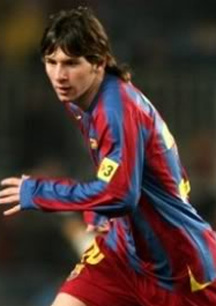
Kenya’s David Rudisha provided the most spectacular individual performance on the track, spread-eagling the field to break his own world 800 metres record without the benefit of pacemakers.
Chelsea kicked off the British sporting summer with an unexpected triumph in the Champions League final, defeating Bayern Munich on penalties at the Allianz Arena to win the European club title for the first time.
After the west London club had eliminated favourites Barcelona in the semi-finals with a scrupulously disciplined defensive display, Didier Drogba levelled the scores in the 88th minute of the final with a header before converting the final spot kick in the penalty shootout.
ARMSTRONG SCANDAL
Wiggins, who had survived the worst life could throw at him, triumphed in the most brutal and demanding of the European road cycling classics.
Abandoned at the age of two by his alcoholic Australian father, himself a professional cyclist who was found dead of head injuries on a street in 2008, Wiggins fought his way out of a council estate with gritty determination and drive.
His victory in the Tour, possibly the greatest individual British sporting achievement of the year and followed by a fourth Olympic gold, was accompanied by unwelcome if not unexpected baggage.
Because the sport in general and the Tour in particular are notoriously drug-tainted, Wiggins was forced to endure a barrage of questions about doping during and after the race.
“If I doped I would potentially stand to lose everything,” he responded. “My reputation, my livelihood, my marriage, my family, my house… my Olympic titles, my world titles.”
The questions, to Wiggins and his rivals, will not go away soon.
Later in the year, American Lance Armstrong was stripped of his seven Tour de France titles after the U.S. Anti-Doping Agency published a report accusing him of being involved in the “most sophisticated, professionalised and successful doping programme that sport has ever seen”.
Armstrong continued to deny ever taking drugs but elected not to contest the charges, which the sporting authorities took as an effective admission of guilt.
Murray’s breakthrough came after he avenged his Wimbledon final defeat to Roger Federer to beat the Swiss master in the Olympic final.
Serena Williams collected gold in the singles and doubles during a winning streak when she added the Wimbledon and U.S. Open titles to her trophy cabinet.
POULTER LEADS FIGHTBACK
McIlroy also played a full part in the year’s most remarkable comeback. After confusion over a tee time, he needed a police escort in his haste to reach the Medinah course on the final day of the biennial Ryder Cup between Europe and the United States when the hosts needed only 4-1/2 points from 12 singles matches to win.
Instead, the Americans conceded 8-1/2 points to the Europeans who won 14-1/2 to 13-1/2. McIlroy prevailed over the previously undefeated Keegan Bradley and German Martin Kaymer sank a five-foot putt on the 18th green to secure the 14 points Europe needed to retain the trophy.
Englishman Ian Poulter, who like the late Seve Ballesteros and Colin Montgomerie before him reserves his best for the Ryder Cup, turned around Europe’s fortunes by earning one of two points in the fourballs on Saturday. Poulter, possessor of one of the more startling wardrobes in a sport not noted for sartorial restraint, was one of eight players to win on Sunday to finish with a 4-0 record overall.
Although another Briton, Jenson Button, won the final Grand Prix of the season in Sao Paulo nobody could deny Red Bull’s Sebastian Vettel, who at the age of 25 became Formula One’s youngest triple world champion.
The German was last on the opening lap of the Brazilian Grand Prix but fought back in a damaged car to finish sixth.
One arena where a British national team performed much as it always does at major tournaments was in the national game of soccer.
For once, under a new coach Roy Hodgson, expectations were not exaggeratedly high for England before the European championships jointly hosted by Ukraine and Poland and losing on penalties to Italy in the quarter-finals was greeted with a resigned shrug rather than outraged indignation.
Spain, the country who took 44 years to win a major tournament, became the first to win three in a row, retaining the European title after triumphing in the 2010 World Cup.
They destroyed Italy 4-0 in the final and their endlessly inventive midfielder Andres Iniesta was named player of the tournament.
Iniesta’s Barcelona team mate Lionel Messi was carried off in a stretcher with what appeared to be a serious knee injury after colliding with Benfica goalkeeper in a Champions League group match on Dec. 5.
Four days later the Argentine scored both goals in a 2-1 La Liga win over Real Betis to overhaul German Gerd Mueller’s previous record of 85 goals in a calendar year set in 1972. Both goals were set up by Iniesta.
Pele’s record of 75 scored in 1958 was already well behind him and, at the age of 25, Messi is in exalted company.
“Leo is supernatural. He doesn’t have limits,” marvelled Barcelona defender Gerard Pique.
Britain’s golden year lingered into December, with yet further cause for celebration through sports developed in Victorian public schools whose passion for organised games inspired Pierre de Coubertin, founder of the modern Olympics.
England, 12/1 outsiders before the match, thrashed world rugby union champions New Zealand 38-21 at Twickenham to bring an abrupt halt to increasingly fevered speculation that the current All Blacks team are the best side ever to play the game.
Then the England cricket side, humiliated in the first test of a four-match series in India, bounced back with captain Alastair Cook leading by example to win the next two by convincing margins.




